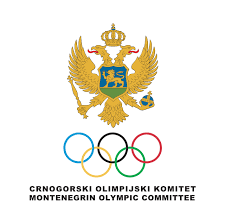The Montenegrin Olympic Committee (NOC Montenegro) is pleased to be a partner in the new Erasmus+ Project named “Strengthening Response Mechanism for Safeguarding in European Sports” (SAFE HARBOUR), which is coordinated by the European Olympic Committees EU Office (EOC EU Office). This initiative is dedicated to enhancing safeguarding mechanisms across European sport, creating safer environments for all.
About NOC Montenegro

NOC Montenegro is the umbrella sports organisation in Montenegro, responsible for promoting Olympism, supporting athletes, and developing sports at all levels. As a member of the International Olympic Committee (IOC) and the European Olympic Committees (EOC), NOC Montenegro plays a key role in organising Montenegro’s participation in the Olympic Games and other Olympic events, fostering elite sports development, and implementing policies that ensure fair play, integrity, and athlete welfare. Through partnerships with national and international organisations, NOC Montenegro works to strengthen sports governance, promote gender equality, safeguarding, and youth development, and enhance the overall sports infrastructure in Montenegro.
The work of NOC Montenegro on safeguarding in sports to date
NOC Montenegro has been at the forefront of promoting safe sports environments through comprehensive safeguarding initiatives. Over the past three years, NOC Montenegro has taken significant steps to protect athletes from harassment, abuse, and misconduct, both at the national and international levels.
The role of NOC Montenegro within the SAFE HARBOUR project
Within the SAFE HARBOUR project, NOC Montenegro will play a critical role in tailoring the European Response framework to its national context. Responsibilities include drafting a National Strategy to guide safeguarding actions, delivering mandatory training for the leadership and National Federations, and hosting a National Multiplier Event to raise awareness among stakeholders. Additionally, NOC Montenegro will engage in peer-to-peer roundtables, contribute to thematic seminars, and disseminate the project results through various channels. By actively participating in all project activities, NOC Montenegro will help ensure the successful implementation and sustainability of safeguarding measures.
Background information on the SAFE HARBOUR project
The SAFE HARBOUR project, short for “Strengthening Response Mechanisms for Safeguarding in European Sport”, is a 30-month project co-funded by the European Union through the Erasmus+ Sport Programme 2024. Coordinated by the EOC EU Office, the consortium includes Thomas More and Asser Institute as experts on safeguarding, human rights and law, 2 International Federations (International Biathlon Union and International Ice Hockey Federations), and 20 National Olympic Committees (Belgium, Bosnia and Herzegovina, Croatia, Cyprus, Czechia, Denmark, Germany, Hungary, Kosovo, Latvia, Lithuania, Luxembourg, Malta, Montenegro, Norway, Poland, Portugal, Romania, Slovakia and Slovenia). Additionally, the International Olympic Committee (IOC) is involved as an outside resource.
The project seeks to strengthen the capacity of European NOCs and Federations to address safeguarding concerns by identifying gaps, developing a European Response framework, and fostering collaboration. This framework will be adapted to national contexts, complemented by training and awareness initiatives to enhance safeguarding measures at both national and European levels. Therefore, SAFE HARBOUR aims to equip partner NOCs and Federations with the tools and confidence to implement effective safeguarding measures while establishing a robust support network for Safeguarding Officers and laying the groundwork for a future IOC Regional Safeguarding Hub.
![]()
![]()